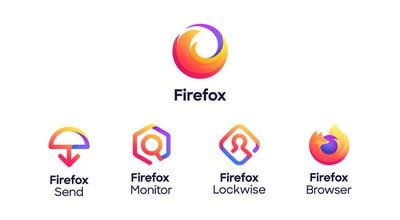 The Mozilla Foundation is working on a premium version of its Firefox browser, according to a new report. German media site T3N ran an interview with Chris Beard, CEO of Firefox, who appeared to confirm that a paid tier of the browser could be ready to launch by October this year.
The Mozilla Foundation is working on a premium version of its Firefox browser, according to a new report. German media site T3N ran an interview with Chris Beard, CEO of Firefox, who appeared to confirm that a paid tier of the browser could be ready to launch by October this year.
According to Beard, the premium version of Firefox is likely to include a VPN, secure cloud storage, and other subscription services such as paywalled content access.
"We will probably launch some new services first and then we will think carefully about which model makes the most sense while ensuring the best user safety," said Beard. "Firefox and many security features and services, like ETP [Enhanced Tracking Protection], will still be free, that's for sure."
Mozilla has been experimenting offering ProtonVPN to some Firefox users for a $10 per month subscription, but Beard says the company is now considering offering some amount of free VPN bandwidth to non-paying users, and a premium metered VPN service as a monthly subscription.
Mozilla currently earns its money through read-it-later and content discovery service Pocket, which it owns, but the majority of its revenue comes from the search engines used in its free browser.
After Beard's interview was published, The Next Web received a statement from Dave Camp, senior vice president of Firefox, who confirmed that paid products are actively in development:
We were founded on the belief that the internet should be open and accessible to all. A high-performing, free and private-by-default Firefox browser will continue to be central to our core service offerings. We also recognize that there are consumers who want access to premium offerings, and we can serve those users too without compromising the development and reach of the existing products and services that Firefox users know and love.
There's no word as yet on pricing for the upcoming paid version of Firefox, the standard version of which relaunched last year powered by a new Quantum engine and including several privacy-focused features.

In perhaps a hint at its planned new product launches, Mozilla on Tuesday unveiled a family of new Firefox logos, designed to give a unified identity to its broadening suite of products and services that become accessible to users who open a Firefox account. For example, Lockwise is a secure password manager, and Monitor that notifies users if their email has been part of a known data breach.
























Top Rated Comments
[doublepost=1560330950][/doublepost]It’s not true anymore. On the contrary, chrome is now much more of a memory hog than the latest versions of Firefox. And as a plus, Firefox doesn’t spy on you.
What about this move? Chrome eats memory real fast as well.
My big wish re privacy is for Apple to either release iMessage for Android or for Signal to be more popular in Europe. If Apple truly care for their user privacy they’ll offer Apple users the ability to contact both Apple and Android users over their encrypted chat via iMessage. Until that day I’ll remain convinced the almighty dollar and not privacy or the experience are Apple’s true north. Get a percentage of droids hooked on iMessage and it makes it awful easy for them to try iPhone as their next phone, they can slip on over. And seeing as there are many more droid than iPhone users stats wise the larger flow of users will come from dark to light. So I expect even financially it would be a win for them. But it would certainly be a privacy win for users.